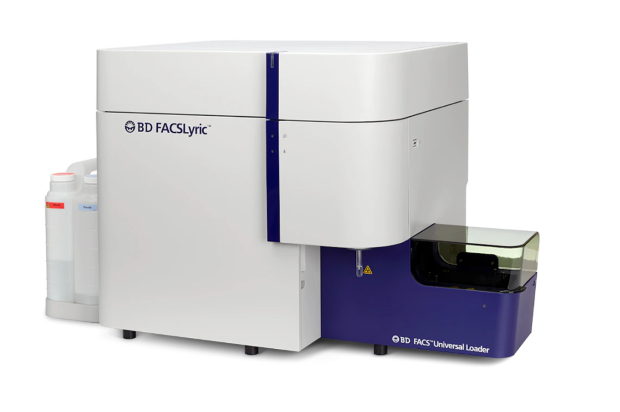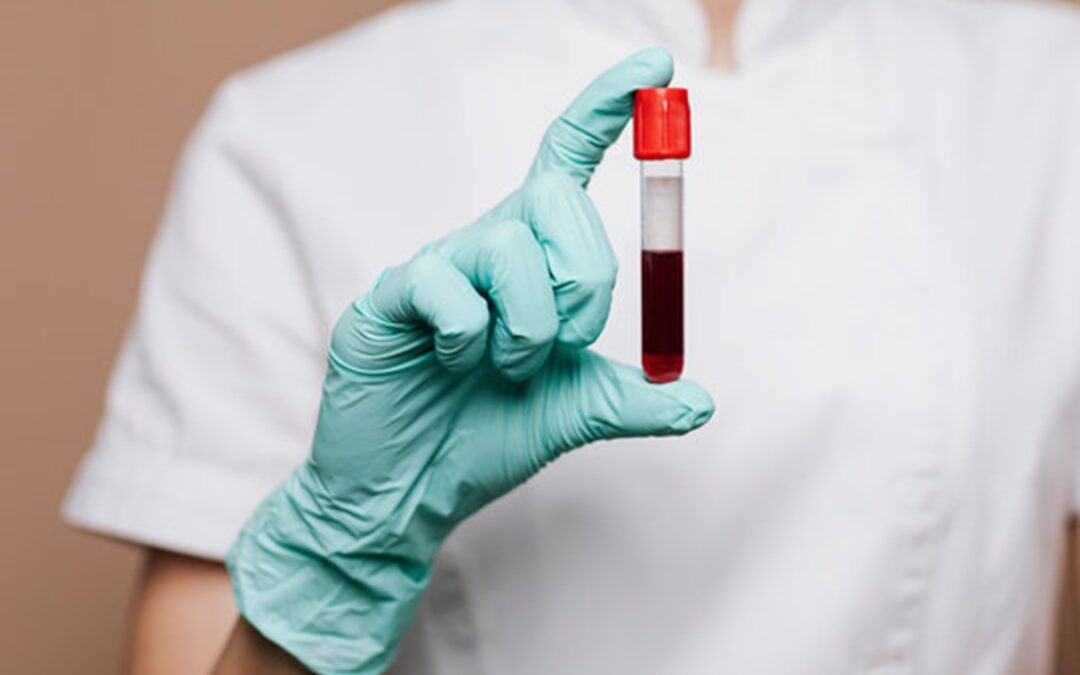Your One Stop Shop for Healthier Living
With over a quarter of a century of Research and Development focusing on Early Detection, RMDM helped launch the pioneering cancer blood test and imaging screening program that can detect all cancers at any stage: PanTum Detect.
PanTum Detect® represents a significant advancement as pan-tumor blood test for screening of asymptomatic healthy population.
PanTum Detect and Imaging: Revolutionising Cancer Diagnostics
A screening program, incorporating the PanTum Detect test and imaging, enables the detection of asymptomatic individuals needing further evaluation who might have otherwise remained undetected.
With just one blood sample, it is possible to identify cancer suspicion and detect potential tumours in their earliest stages of development.
- Non Invasive: a simple blood test/draw, done in a lab or clinic
- Accurate: 99.2% specific and 82.3% sensitive (unmatched in cancer diagnostics)
- Universal: can detect the presence of any kind of tumour via the novel use of 2 unique biomarkers
- Affordable: the simple technology allows you to do a yearly screening check
- Possibility of localization and classification of detected tumours
- Exposure to radiation only when necessary


Can a blood test detect cancer?
PanTum Detect is a CE-certified IVD blood test that can detect the presence of any suspicious tumour at any stage of development, which is based on the detection of epitopes in monocytes.
Activated monocytes (macrophages) phagocytose unwanted cells/cell fragments from the whole body including tumour cells from solid tissues. As they return to the blood macrophages can be used for non-invasive detection of the biomarkers (Apo10 & TKTL1), thereby providing high sensitivity and specificity, because the intracellular presence of biomarkers is not diluted.
Flow cytometry analysis of blood enables the detection of macrophages and phagocytosed intracellular biomarkers. In order to establish a pan-cancer test, biomarkers for two fundamental biological mechanisms have been exploited.
The DNaseX/Apo10 protein epitope is a characteristic of tumour cells with abnormal apoptosis and proliferation. Transketolase-like 1 (TKTL1) is a marker for an anaerobic glucose metabolism (Warburg effect), which is concomitant with invasive growth/metastasis. Elevated levels of TKTL1 indicate a shift toward this metabolic phenotype, whereas high Apo10 concentrations reflect dysregulated cell death and proliferation, together highlighting key mechanisms driving cancer progression. The test has already proven its capabilities with over 160,000 blood samples analysed across 50 tumour entities.
Pantum Detect will not only help prevent cancer related deaths via a regular screening check for healthy people but will also massively reduce the cost and strain on the healthcare system. It is truly a breakthrough in cancer care!
E.D.I.M Epitope Detection In Macrophages

The EDIM technology makes use of the body’s immune system; these steps explain how the technology works:
 Macrophages migrate from blood into tissue.
Macrophages migrate from blood into tissue. Macrophages phagocytose degenerated tumour cells.
Macrophages phagocytose degenerated tumour cells. Macrophages with absorbed tumour-specific structures migrate back into the blood.
Macrophages with absorbed tumour-specific structures migrate back into the blood. PanTum Detect - The phagocytosed tumour cells are examined.
PanTum Detect - The phagocytosed tumour cells are examined.
1. Macrophages migrate from blood into tissue.
2. Macrophages phagocytose degenerated tumour cells.
3. Macrophages with absorbed tumour-specific structures migrate back into the blood.
4. Pantum Detect – The phagocytosed tumour cells are examined.
PanTum Detect + Imaging: The Ideal Combination
Potentially dangerous tumours are able to be detected at a very early stage using imaging methods (such as MRI, PET/CT, etc.); but these methods cannot be used for a national screening program due to the high costs, lack of access, and potentially harmful radiation.
Combining PanTum Detect with modern imaging allows for safe cancer screening by filtering out non-cancer suspicious patients.
In 2022, a large-scale study (study publication) with over 5,000 asymptomatic subjects, PanTum Detect successfully identified cancer-suspicious patients justifying a follow-up examination ( using imaging methods).
The study confirms that PanTum Detect annual screening can provide early detection of tumours, leading to increased survival rates.
With a NPV 99.64 there is a very low rate of false negative making it ideal for a nationwide screening program.
Private lecturer Dr G.-Andre Banat, MBA, summarises the applicability of the new findings as follows:
“The study results suggest that this combination of the PanTum Detect blood test and imaging methods can close significant gaps in effective early cancer detection.”
High Sensitivity & Specificity
Through EDIM technology we have achieved high sensitivity and specificity results.
%
Sensitivity
- PanTum Detect identifies 82.3% of 100 tumour patients.
- PanTum Detect reaches this high sensitivity because tumour-specific structures are well-conserved and highly concentrated inside the macrophages.
%
Specificity
- Specificity is the most important KPI (Key Performance Index) for screening tests.
- PanTum Detect reaches this high specificity by leveraging the extremely specific immune system (detection of biomarkers in macrophages).
PanTum Detect Cancer Test: Frequently Asked Questions
What is PanTum Detect?
PanTum Detect is a CE certified IVD blood test that can detect the presence of any suspicious tumour at any stage of its development, and which is based on the detection of epitopes in monocytes.
How does PanTum Detect work?
Activated monocytes (macrophages) phagocytose unwanted cells/cell fragments from the whole body, including solid tissues. As they return to the blood, macrophages can be used for non-invasive detection of two biomarkers called Apo10 and TKTL1. This detection provides high sensitivity and specificity because the intracellular presence of biomarkers is not diluted.
Which types of cancer can be picked up by PanTum Detect?
Over 50 cancer types were detected in studies using the PanTum Detect tumour markers:
Adenocarcinoma, Aerodigestive Cancer, Astrocytoma, Pancreatic Cancer, Bladder Cancer, Bronchial Cancer, Breast Cancer, Cholangiocarcinoma (Biliary CA), Colorectal Cancer, DIPG / "Pons Gliomas", Triple Negative Breast Cancer, Ductal Carcinoma, Ovarian Cancer, Endometrial Cancer, Ependymoma, Gastroesophageal Transition Cancer, Cervical cancer, Uterine cancer, Brain tumour, Glioblastoma, Granulosa cell tumour, Gynaecologic cancers, Hepatoblastoma, HER2 positive breast cancer, Hyperplasia, Small cell lung cancer, Head and neck cancer, Lung cancer, Lymphoma tumours, Gastric cancer, Malignant conjunctival tumours, Medulloblastoma, Melanoma tumours, Nasopharyngeal carcinoma, Neoplastic lung tissue, Nephroblastoma, Non-metastatic rectal adenocarcinoma, Non-small cell lung cancer, Renal cancer, Oral squamous cell carcinoma OSCC, Estrogen receptor (ER)-positive breast cancer, Squamous intraepithelial neoplasm (SIN I - III), Squamous cell carcinoma, Squamous cell carcinoma of breast, Squamous cell carcinoma of the prostate, Squamous cell carcinoma of the esophagus (ESCC), Progesterone receptor (PR)-positive breast cancer, Prostate cancer, PSA-positive prostate cancer, PSMA-positive prostate cancer, Rectal cancer, Rhabdomyosarcoma, Thyroid cancer (follicular and papillary), Tumours of the eye appendage, Urothelial cancer, Vaginal cancer, Vulvar cancer
Note: Previously tested lymphomas and leukemias have also shown to be positive for PanTum Detect, but are not included in this list of solid tumours.
Disclaimer: This list contains information from publications and information from clinical practice in real testing situations.
Can you define these biomarkers and is the test cancer specific?
PanTum Detect is a pan-tumour test, able to detect the presence of any suspicious tumour. Combined with the imaging methods such as MRI, PET/CT, the screening program offers a high probability of localization and classification of detected tumours.
The biomarkers that are exploited and unique to PanTum are for two fundamental biophysical mechanisms. The DNaseX (Apo10) protein epitope is a characteristic of tumour cells with abnormal apoptosis and proliferation. Transketolase-like 1 (TKTL1) is a marker for anaerobic glucose metabolism (Warburg effect), which is concomitant with invasive growth/metastasis and resistant to radical and apoptosis-inducing therapies.
What is the technology used for analysis?
Flow cytometry analysis of blood enables the detection of macrophages and phagocytosed intracellular biomarkers. There is an integrated gating and algorithmic analysis within the flow cytometer.
What happens if a customer receives a tumour-suspicious result?
If a customer receives a tumour-suspicious result, a prompt and efficient physician consultation will be organized and the follow-up examination (such as PET/CT or MRI) and a referral to an oncologist in case the initial suspicion is confirmed.
What are the specificity and sensitivity results of PanTum Detect?
PanTum Detect is extremely accurate, identifying cancer with 99.2% specificity and 82.3% sensitivity, minimizing the risk of false positives and false negatives.
Where can customers get a PanTum Detect test? Do they need a referral?
The test is currently available the Doctor’s Center Polyclinic, 7B - Al Shasha St - Umm Suqeim - Umm Suqeim 1 - Dubai - United Arab Emirates.
At present, we are working to make the PanTum Detect test available in the UK soon. Keep an eye on our Twitter and LinkedIn page and website for updates on when the PanTum Detect + Imaging Screening Program will be available.
My PanTum Detect test is NOT tumour-suspicious – what happens next?
This is great news! No immediate further test is required. We recommend that you schedule another PanTum Detect test within 12 months to provide ongoing peace of mind.
How accurate is PanTum Detect?
PanTum Detect is extremely accurate and minimises error. It has been demonstrated showing 99.2 % specificity (true negatives) and 82.3% sensitivity (true positives).
How does PanTum Detect work? Can I have a simple explanation?
PanTum Detect is a simple blood test that measures two markers within your immune system. If the markers pass a certain threshold, the test result is tumour suspicious.
Is the experience of getting a PanTum Detect blood test any different to a regular blood test?
No, PanTum Detect is performed in exactly the same way as a regular blood draw.
How long will it take to get the results of my PanTum Detect test?
It usually takes around a week to get the results of PanTum Detect.
Can PanTum Detect tell what type of cancer I have?
No, PanTum Detect can only detect the presence of suspicious tumors If the test is positive, imaging methods such as MRI, PET/CT, offer the possibility to confirm the type of cancer and localize it.
Can PanTum Detect tell what stage of cancer I have?
PanTum Detect is able to indicate whether your cancer is likely to be early or late stage. This is thanks to the markers detected. One marker indicates early-stage cancer, while the other is only present in later stage cancers.
How much does a PanTum Detect blood test cost?
The cost of PanTum Detect is comparative with the cost of other biomarker tests available in the market. Our partner clinics can give you further information on pricing.
How often should I have a PanTum Detect test?
PanTum Detect would be a great addition to any regular health monitoring and we recommend patients have the test at least once per year. This will help ensure that any cancer that may develop is detected at the earliest possible stage.
Is there any age limit for PanTum Detect?
No, there is no age limit. PanTum Detect can be successfully used to detect cancer in people of any age.
Other Resources You Might Find Useful
PanTum Detect® Now Available at the Doctors Centre Polyclinic in Dubai
We’re excited to announce that RMDM Group’s PanTum Detect® blood test is officially live at the Doctors Centre Polyclinic in Dubai.
Reducing Late-Stage Diagnoses: How PanTum Detect Fits into Emerging MCED Strategies
New modelling shows annual multi-cancer early detection (MCED) tests could cut late-stage diagnoses by 49%. RMDM Group’s PanTum Detect goes further—identifying both early-stage cancers and precancerous changes with high accuracy. With a positive predictive value of 66.47%, it offers a powerful, non-invasive tool to fill gaps in current screening and…
Harnessing Sugar’s Dual Role in Cancer: From Fuel to Therapeutic Target
While sugar is often seen as a cancer culprit, new research shows it can also be a powerful tool in diagnosis, treatment, and prevention. From the tumour-fuelling role of glucose to the therapeutic potential of functional sugars like mannose, this article explores how understanding sugar metabolism—especially through the TKTL1 gene…
New Research Links Sugar-Sweetened Beverages to Oral Cavity Cancer Risk in Women
A recent study published in JAMA Otolaryngology has uncovered a concerning link between the consumption of sugar-sweetened beverages (SSBs) and an increased risk of oral cavity cancer in women, including both smokers and non-smokers. The findings show that women who regularly consumed sugary drinks were found to have a significantly…
Advancing Prostate Cancer Detection: The Role of AI and Blood-Based Screening
The AI-powered prostate cancer test developed by EDX Medical Group represents a major advancement in early detection. By analysing over 100 biological markers in blood and urine samples, it offers a more accurate assessment of prostate cancer risk than traditional methods like PSA testing, highlighting the critical role of early…
NHS Backlogs, Less Rhetoric and More Solutions by Dr. Letizia Gulino, Head of Science and Technology RMDM
We are witnessing a crucial moment for the NHS as it promises to reduce waiting lists and deliver timely care. This commitment resonates with patients and healthcare professionals. However, while the intentions behind these proposals are laudable, critical questions remain regarding their feasibility, workforce capacity, and long-term sustainability by the…
Reforming Prostate Cancer Testing: Chris Hoy’s Urgent Appeal for Change
Olympic cyclist Sir Chris Hoy is advocating for improved prostate cancer tests for younger men following his terminal diagnosis in September 2023. His recent interview with the BBC reveals the limitations of the NHS’s current protocol for prostate cancer testing.
Government and Tech Innovators Unite to Advance Cancer Detection: The Potential of Pantum Detect
In a recent press release, the UK government outlined an initiative to boost tech deals aimed at further innovating cancer diagnosis in the country. This plan follows the Darzi review, which highlighted the critical state of the NHS, particularly the urgent need to improve cancer survival rates.
Darzi Report Findings: The Urgent Need for Innovative Technology in NHS Cancer Care
In the House of Commons, Health Secretary Wes Streeting introduced a "national mission" to tackle key health challenges. Presenting the Darzi report, commissioned by the Labour government, he outlined the NHS's ongoing struggles in the post-pandemic era, including missed targets in cancer care, A&E services, and hospital treatment.
The UK’s Approach to Multi-Cancer Detection Tests
Last month, the UK National Screening Committee (UK NSC) shared their updated view on Multi-Cancer Detection (MCD) tests. They highlighted the potential and the immediate need for a multi-cancer detection solution in the UK. They are working to outline a roadmap for finding this solution. At RMDM, we are at…









